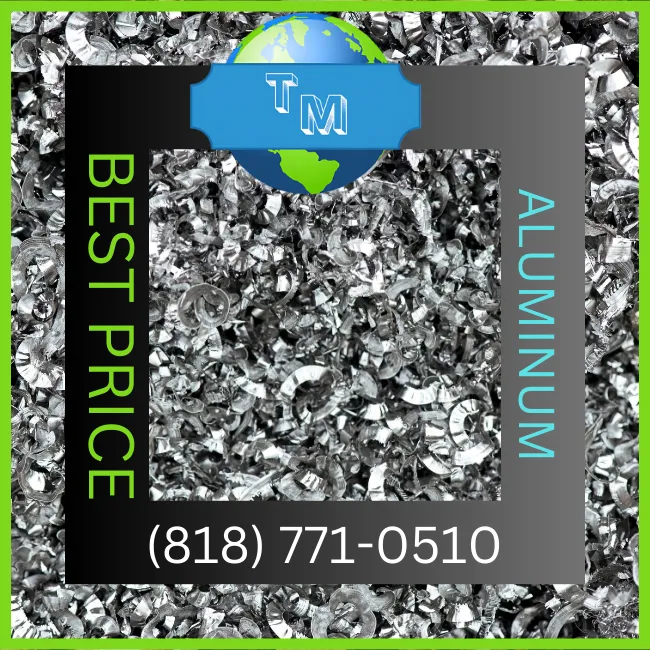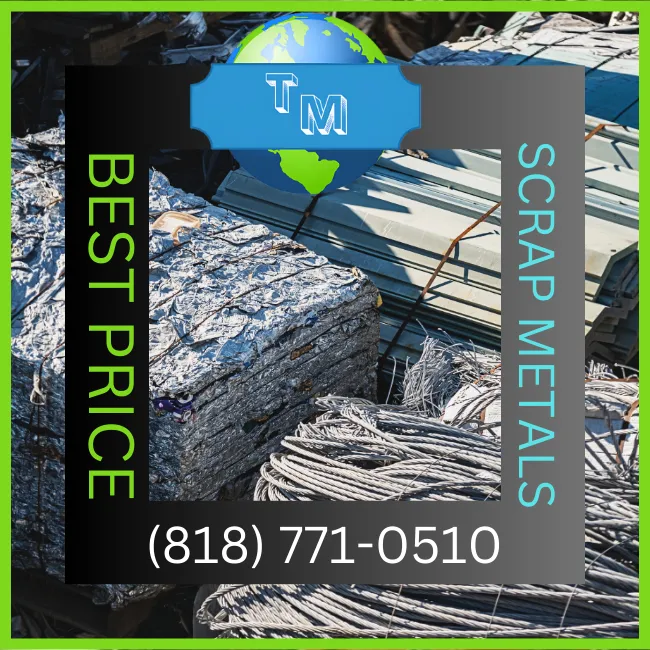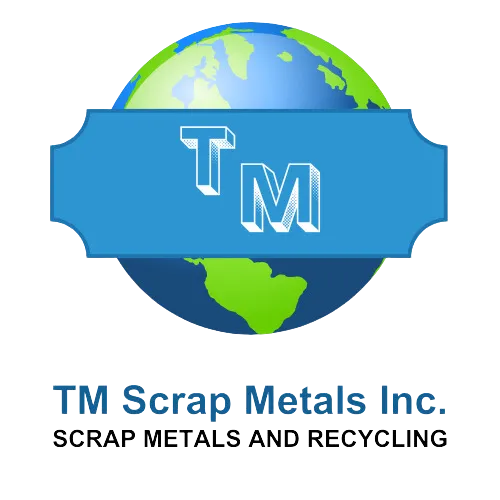Sponsored





Scrap Metals in Glendale
Local Buyers And Recycling Centers Offering Fast, Fair, And Convenient Metal Services
Explore top scrap metal options in Glendale with trusted local facilities ready to handle aluminum, copper, brass, steel, and mixed metals. Nearby centers provide accurate weighing, competitive pricing, and easy drop-off—making it simple to recycle responsibly and get the best value for your scrap materials. Browse Glendale scrap metal centers and connect with local providers today.
Scrap Metals in Glendale – Why Hire a Professional Scrap Metals Service
Everything You Need to Know About Scrap Metals and Professional Recycling Services in Glendale
Understanding Scrap Metals in Glendale
Scrap metals are an essential part of Glendale’s recycling ecosystem, contributing to environmental protection and resource conservation. Whether you're dealing with copper wiring, aluminum cans, brass fixtures, or stainless steel appliances, recycling scrap metals can significantly reduce landfill waste and support sustainable manufacturing. Glendale residents and businesses alike play a key role in this ongoing effort to keep the community clean and eco‑friendly.
As demand for recycled materials continues to increase, understanding how scrap metals are processed and valued becomes more important. Market prices fluctuate, and factors such as metal type, condition, and quantity all influence the payout you receive. Many Glendale locals find that working with professional services ensures a smoother and more profitable recycling experience.
Why Hiring a Professional Scrap Metals Service in Glendale Matters
Hiring a professional scrap metals service in Glendale offers numerous benefits that go beyond simple recycling. Professionals have the expertise to identify various metal types accurately, ensuring you receive fair compensation. They also use advanced weighing systems and follow industry standards, eliminating the guesswork and discrepancies often seen with inexperienced or informal buyers.
In addition to accuracy, professional services provide convenience. Handling scrap metals—especially larger loads or industrial materials—can be time‑consuming and physically demanding. A reputable Glendale scrap metals company will offer services such as pickup, sorting assistance, and quick payment options, making the entire process more efficient and stress‑free.
Working with licensed professionals also gives you peace of mind regarding environmental responsibility. Glendale has strict guidelines for recycling and proper disposal of metals, and a certified service ensures all materials are processed safely and ethically. This keeps dangerous materials out of landfills and supports sustainable practices throughout the region.
How to Select the Best Scrap Metals Service in Glendale
Choosing the right scrap metals service requires careful consideration. Start by reviewing local Glendale companies with strong reputations, verified licenses, and positive customer feedback. Trustworthy businesses are transparent about pricing, weighing procedures, and current market rates, ensuring you are fully informed before completing a transaction.
If you’re dealing with large quantities of scrap metals, look for companies offering value‑added services. These may include free or low‑cost pickup, on‑site evaluations, sorting help, and prompt payment methods. Such features greatly enhance your overall experience and can significantly increase your return.
Another major factor is communication. A high‑quality scrap metals service in Glendale will be responsive, knowledgeable, and ready to answer any questions you may have about pricing, materials, or procedures. Clear communication builds trust and ensures a seamless recycling process from start to finish.
By partnering with a professional scrap metals service in Glendale, you not only maximize your earnings but also contribute to a cleaner and more sustainable community. Whether you’re a homeowner clearing out unused items or a contractor managing industrial scrap, professional expertise ensures efficiency, safety, and top‑tier results.
TM Scrap Metals, Inc
Recycling Center

Google: 4.8 stars
Ferrous Metals Recycling, Non-Ferrous Metals Recycling
(818) 771-0510
11092 Tuxford St, Sun Valley, CA 91352
Website: www.tmscrapmetals.com




Glendale Aluminum Recycling
Building a Sustainable Future Through Recycling
The Importance of Aluminum Recycling in Glendale
Aluminum recycling plays a pivotal role in Glendale’s efforts to promote sustainability and environmental conservation. With a growing population and increased urban development, the city generates significant amounts of aluminum waste, including cans, foil, and other products. Recycling these materials not only reduces landfill usage but also conserves valuable natural resources such as bauxite, the primary ore used in aluminum production.
Unlike many other materials, aluminum can be recycled indefinitely without losing its quality. This unique property makes aluminum recycling a highly effective way to reduce energy consumption and carbon emissions. For Glendale residents, participating in recycling programs is a simple yet impactful way to contribute to a greener future.
How Glendale Facilitates Aluminum Recycling
The city of Glendale has established multiple drop-off points and curbside recycling services to make aluminum recycling convenient for residents. These facilities accept a wide range of aluminum products, from beverage cans to household items like aluminum trays and old appliances.
Glendale’s recycling centers are equipped with state-of-the-art sorting and processing technologies. These systems ensure that aluminum waste is efficiently separated from other recyclables, shredded, melted down, and reformed into new products. This closed-loop recycling process significantly reduces the energy needed compared to producing aluminum from raw materials.
Additionally, Glendale’s local government partners with businesses and organizations to promote awareness about recycling. Public education campaigns and workshops provide valuable information on how residents can maximize their recycling efforts.
Benefits of Aluminum Recycling for Glendale
Recycling aluminum offers numerous environmental and economic benefits for Glendale. Environmentally, it reduces the demand for raw material extraction, which often leads to deforestation and habitat destruction. Recycling also helps lower greenhouse gas emissions, as producing aluminum from recycled materials requires up to 95% less energy than using virgin ore.
Economically, the recycling industry creates jobs and generates revenue for the local community. Aluminum is one of the most profitable materials to recycle, and Glendale’s robust recycling program contributes to the city’s financial sustainability. By selling processed aluminum to manufacturers, the city can reinvest funds into public services and infrastructure projects.
Furthermore, recycling helps Glendale residents save money. Many recycling centers offer cash incentives for aluminum cans and other materials, encouraging more people to participate actively in the program.
Getting Involved in Glendale’s Aluminum Recycling Programs
Becoming part of Glendale’s aluminum recycling initiative is easier than ever. Start by sorting your household recyclables and ensuring aluminum products are free from food residue. Clean aluminum is more valuable and easier to process, making your contribution more effective.
Check Glendale’s official website or local community boards for information on recycling schedules, drop-off locations, and accepted materials. Some centers even offer specialized programs for large aluminum items like car parts and furniture.
Schools and community groups in Glendale are also joining the effort by organizing aluminum recycling drives. These events not only help collect significant amounts of recyclable material but also raise awareness about the importance of sustainability among younger generations.
Conclusion: Glendale’s Path to a Sustainable Future
Glendale’s commitment to aluminum recycling underscores the city’s dedication to environmental stewardship and community well-being. By participating in recycling programs, residents can help conserve natural resources, reduce pollution, and support the local economy.
Whether you are an individual, a business owner, or part of an organization, there are countless ways to get involved in Glendale’s recycling efforts. Together, we can build a cleaner, greener, and more sustainable future for generations to come.
Scrap Stop
Address: 20749 Prairie St, Chatsworth, CA 91311
Phone: (818) 734-6654
Services: Recycling center
Website: myscrapstop.com
Google Rating: 4.2 (50 reviews)
Hours: Monday - Friday: 8 AM - 4:45 PM | Saturday: 8 AM - 12 PM | Sunday: Closed
Car's Cash For Junk Clunkers
Address: 945 Air Way, Glendale, CA 91201
Phone: (747) 281-2431
Services: Junk dealer, Junkyard
Website: carscashforjunkclunkersglendaleca.com
Google Rating: 5.0 (7 reviews)
Hours: Open 24 hours daily
West Side Metal Recycling
Address: 6449 San Fernando Rd, Glendale, CA 91201
Phone: (818) 243-6965
Services: Recycling center, Liquidator
Website: wsrecycling.com
Google Rating: 3.7 (29 reviews)
Hours: Monday - Friday: 8 AM - 4:30 PM | Saturday: 8 AM - 3 PM | Sunday: Closed
Allan Company Recycling Center
Address: 540 W Chevy Chase Dr, Glendale, CA 91204
Phone: (818) 552-2870
Services: Recycling center
Website: allancompany.com
Google Rating: 4.5 (95 reviews)
Hours: Monday - Friday: 7:30 AM - 4:45 PM | Saturday: 8 AM - 3:30 PM | Sunday: Closed
Scrap Metals Glendale
Turn unwanted metals into fast cash locally.
Get top value for your scrap metals in Glendale—sell today!
People Also Ask
Scrap metals are discarded metal materials that can be collected, processed, and recycled for reuse in manufacturing. They come from a wide range of sources, including household appliances, construction debris, vehicles, industrial equipment, electrical wiring, and everyday consumer products. Scrap metals are typically classified into two main categories: ferrous metals, which contain iron and are magnetic, and non-ferrous metals, which do not contain iron and often carry higher recycling value. Common examples include steel, iron, copper, aluminum, brass, and stainless steel. Because metals can be recycled repeatedly without losing their properties, scrap metals play a major role in supporting sustainable resource management and reducing the need for new mining.
Nearly all common metals can be recycled, including ferrous metals such as steel and iron, and non-ferrous metals such as copper, aluminum, brass, lead, and stainless steel. Ferrous metals are often found in vehicles, appliances, beams, and construction materials, while non-ferrous metals commonly appear in wiring, plumbing components, radiators, electronics, and machinery. Non-ferrous metals generally hold higher market value due to their recyclability and industrial demand. Even metals that appear corroded, painted, insulated, or mixed with other materials can often be processed. Sorting metals by type before recycling improves efficiency, supports accurate grading, and can increase overall value at recycling facilities.
The scrap metal recycling process begins with collecting and sorting metals based on type, grade, and condition. Ferrous and non-ferrous metals are separated using magnets and visual inspection. After sorting, metals are cleaned to remove contaminants such as insulation, coatings, dirt, or attached materials. The metals are then cut, shredded, or compacted into smaller pieces for efficient melting. In the melting stage, each metal is heated to its specific melting point, refined to remove impurities, and cast into reusable forms such as ingots, rods, or sheets. These recycled materials are supplied to manufacturers to produce new products, supporting a circular and sustainable manufacturing system.
Scrap metal recycling is important because it conserves natural resources, reduces environmental waste, and decreases the energy required to manufacture new products. Recycling metals consumes significantly less energy than producing metal from raw ore, helping reduce carbon emissions and support cleaner industrial practices. It also keeps valuable materials out of landfills, where metals can take decades to break down. Economically, scrap recycling supports thousands of jobs and supplies industries with cost-effective raw materials. Since metals can be recycled indefinitely without losing structural quality, recycling plays a central role in sustainable resource management and long-term environmental protection.
Ferrous metals contain iron and are magnetic, making them easy to identify during sorting. Examples include steel, cast iron, and wrought iron. These metals are commonly used in construction, automotive manufacturing, and large household appliances. Non-ferrous metals do not contain iron and are not magnetic. Common examples include copper, aluminum, brass, lead, and stainless steel. Non-ferrous metals typically have higher recycling value because they retain their properties through multiple recycling cycles and are widely used in electrical, plumbing, industrial, and aerospace applications. Understanding the difference helps ensure proper sorting, accurate valuation, and efficient recycling processes.
To increase the value of scrap metals, sorting them by type is one of the most effective steps. Separating ferrous from non-ferrous metals helps recyclers process materials efficiently. Removing contaminants such as insulation, coatings, screws, plastic, or rubber attachments enhances purity and improves pricing. Cleaning off dirt, oil, or residue can also help, especially for metals like copper or brass. Larger items may be cut down to manageable sizes for easier transportation and processing. Organizing materials into clearly labeled categories ensures accurate grading and may lead to better pricing from recycling facilities. Proper preparation supports faster processing and maximizes material value.
Living in Glendale, CA: A Guide to a Vibrant Community
The Lifestyle in Glendale
Nestled in the heart of Los Angeles County, Glendale, California, offers a unique blend of suburban charm and urban convenience. Known for its excellent schools, safe neighborhoods, and diverse community, Glendale is a sought-after location for families and professionals alike. With a variety of parks, cultural attractions, and shopping destinations like the Americana at Brand, Glendale provides a vibrant lifestyle that appeals to all ages.
The city is also home to a thriving Armenian-American community, contributing to its rich cultural tapestry. Residents enjoy an array of international cuisine options, local festivals, and a strong sense of community pride.
Neighborhoods and Housing
Glendale boasts a wide range of neighborhoods to suit various preferences and budgets. From the luxurious hillside homes in the Chevy Chase Canyon area to the charming tree-lined streets of Rossmoyne, there's something for everyone. Downtown Glendale is a bustling hub, featuring modern apartments and condos close to restaurants, theaters, and shops. Meanwhile, areas like Verdugo Woodlands provide a quieter, more residential atmosphere.
The real estate market in Glendale is competitive but offers excellent value considering the amenities and quality of life available. Renters and buyers can find a mix of historic properties, new developments, and everything in between.
Job Opportunities and Sustainability
Glendale is home to a robust job market, with opportunities in industries like entertainment, healthcare, and technology. Companies like DreamWorks Animation have a significant presence in the area, attracting creative talent from around the globe. The city is also a hub for small businesses and entrepreneurial ventures, providing ample opportunities for professional growth.
Glendale's commitment to sustainability is evident in its emphasis on recycling programs, including scrap metal recycling. Local businesses and residents alike are encouraged to participate in these initiatives to reduce waste and promote environmental stewardship. For those interested in recycling scrap metals, facilities like Glendale's official recycling centers offer convenient services to make the process simple and efficient.
Attractions and Entertainment
Glendale offers plenty of attractions to keep residents entertained. The Brand Library & Art Center is a cultural gem, hosting art exhibitions, music performances, and educational programs. Outdoor enthusiasts can explore the Verdugo Mountains, which offer hiking trails with breathtaking views of the Los Angeles skyline.
For shopping and dining, the Americana at Brand and Glendale Galleria provide an extensive selection of stores, eateries, and entertainment options. Families will enjoy visits to the Los Angeles Zoo, located just a short drive away in Griffith Park, as well as local parks and community events.


